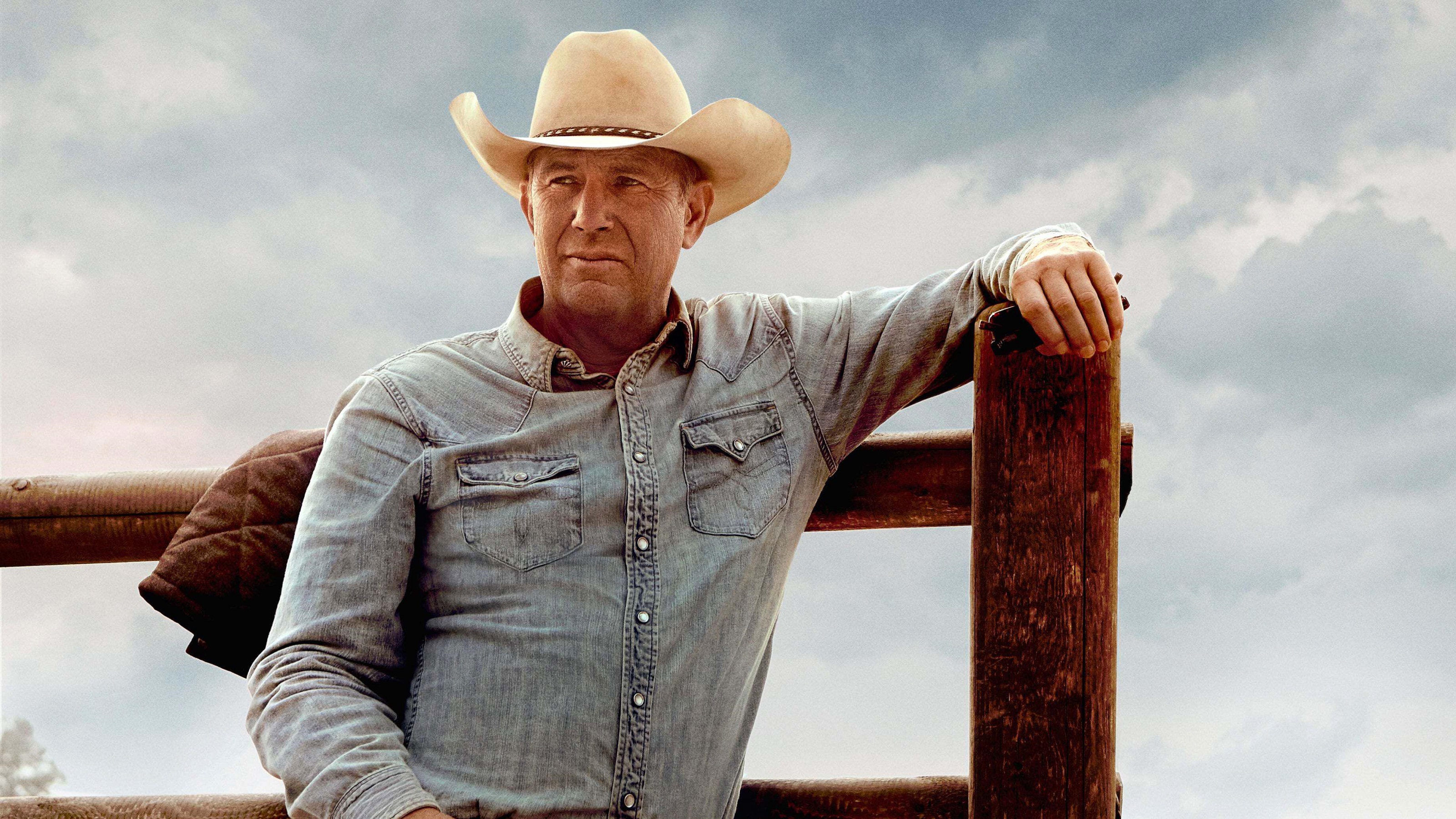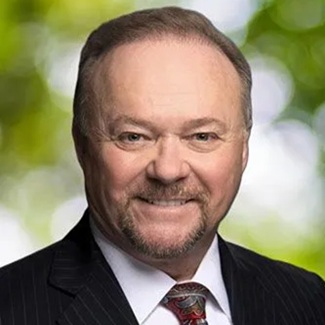Three 'Yellowstone' Estate Planning Lessons
We can learn a lot from John Dutton's estate planning mistakes. Here are just a few that relate to families in general and family businesses in particular.


Profit and prosper with the best of Kiplinger's advice on investing, taxes, retirement, personal finance and much more. Delivered daily. Enter your email in the box and click Sign Me Up.
You are now subscribed
Your newsletter sign-up was successful
Want to add more newsletters?

Delivered daily
Kiplinger Today
Profit and prosper with the best of Kiplinger's advice on investing, taxes, retirement, personal finance and much more delivered daily. Smart money moves start here.

Sent five days a week
Kiplinger A Step Ahead
Get practical help to make better financial decisions in your everyday life, from spending to savings on top deals.

Delivered daily
Kiplinger Closing Bell
Get today's biggest financial and investing headlines delivered to your inbox every day the U.S. stock market is open.

Sent twice a week
Kiplinger Adviser Intel
Financial pros across the country share best practices and fresh tactics to preserve and grow your wealth.

Delivered weekly
Kiplinger Tax Tips
Trim your federal and state tax bills with practical tax-planning and tax-cutting strategies.

Sent twice a week
Kiplinger Retirement Tips
Your twice-a-week guide to planning and enjoying a financially secure and richly rewarding retirement

Sent bimonthly.
Kiplinger Adviser Angle
Insights for advisers, wealth managers and other financial professionals.

Sent twice a week
Kiplinger Investing Weekly
Your twice-a-week roundup of promising stocks, funds, companies and industries you should consider, ones you should avoid, and why.

Sent weekly for six weeks
Kiplinger Invest for Retirement
Your step-by-step six-part series on how to invest for retirement, from devising a successful strategy to exactly which investments to choose.
Along with the rest of the country, I am addicted to the Yellowstone TV series and am looking forward to watching tonight’s series finale. While I enjoy the show and its many plot twists and turns, I also watch it from the perspective of an estate planning and tax attorney. Many of the plot twists relate to critical estate planning and business succession issues. The following are just a few. (Warning: Spoilers are possible if you’re not up to date on the series.)
1. None of us has a specific expiration date.
John Dutton, while serving as the governor of Montana, was murdered. When he died, the family had not implemented a plan to minimize or pay the estate tax owed at his death. This left the surviving children with a seemingly insurmountable burden to keep the ranch in the family.
So many of my clients say, “I am not planning to die this year, so we have plenty of time to implement a plan later.” I rarely comment on that attitude, as my job is to provide alternatives and not to “sell” any particular course of action. I have often dealt with the disaster that unfolds with an unexpected death and an incomplete or missing estate plan.
From just $107.88 $24.99 for Kiplinger Personal Finance
Become a smarter, better informed investor. Subscribe from just $107.88 $24.99, plus get up to 4 Special Issues

Sign up for Kiplinger’s Free Newsletters
Profit and prosper with the best of expert advice on investing, taxes, retirement, personal finance and more - straight to your e-mail.
Profit and prosper with the best of expert advice - straight to your e-mail.
Part of the problem for the Dutton family is that the estate tax is typically due in full in cash nine months from the date of death. While a single six-month extension to file is available, the estate tax must still be paid in full nine months from the date of death.
This nine-month payment requirement may require the sale of assets, such as the Yellowstone Dutton Ranch for the Duttons or your family business at a "fire sale" discounted price. If a buyer knows of this deadline — and the buyer can easily find out — they will be motivated to make a lowball offer. The family will often not receive a fair value after decades or generations of ownership and sacrifice.

John assists business owners, real estate owners and successful families to achieve their enlightened dreams by better protecting their assets, minimizing income and estate tax and resolving messes and transitions to preserve, protect and enhance their legacy. John is one of few California attorneys certified as a Specialist by the State Bar of California Board of Legal Specialization in both Taxation and Estate Planning, Trust and Probate.
In the TV show, the Duttons began by selling livestock and horses. Even with the livestock, they were worried about whether they could get a good price when having to sell so quickly and all at once. This announces to the public at large that this is a fire sale. A more complex sale of land or a business could take much longer than nine months just to identify a qualified buyer, let alone close the sale and collect the sale proceeds.
John Dutton, without seeking professional advice, also put a portion of the ranch under a conservation easement. This could be structured to permit cattle ranching and similar ranch and farm activities to continue. The conservation easement would mean that the land in the easement would have a reduced value based on the limited permissible use of the property. The overall value of the property would not take into consideration the added value if the property were developed for homes or commercial real estate. The lower value would also mean lower estate taxes. But that alone was not sufficient to save the Yellowstone Dutton Ranch.
On a positive note for the Dutton family, I don’t believe that the IRS could force a higher estate tax valuation than the amount actually received in the eminent domain process from the state of Montana. Eminent domain is the process that the government uses to take land from a private citizen. “Just compensation” is required for eminent domain. The IRS would need to recognize that value.
We can take actions to minimize income taxes and estate taxes and to determine when they must be paid, if certain conditions are met. For income tax, the most obvious example is to sell a qualified appreciated asset under an installment sale. The capital gain associated with that sale is paid over the term that payments are actually received.
For estate tax, Internal Revenue Code (IRC) Section 6166 permits the estate tax related to the farm or ranch to be paid over 14 years at a substantially reduced interest rate. Thirty-five percent or more of the adjusted gross estate must be owned by a closely held business. If so, and the other requirements, such as being a United States citizen, are satisfied, then the portion of the estate tax attributable to the family business can be paid over 14 years.
There are so many different alternatives to minimize estate tax that it represents a veritable alphabet soup. Gifting trusts, GRATs (grantor retained annuity trusts), SLATs (spousal lifetime access trusts), CRTs (charitable remainder trusts), CRATs (charitable remainder annuity trusts), LLCs (limited liability companies), TCLATs (testamentary charitable lead annuity trusts), TCRTs (testamentary charitable remainder trusts) and FLPs (family limited partnerships) are just some of the tools that may be used.
John Dutton should have sought professional advice to minimize and provide for the payment of the estate tax. His family would not be faced with the economic reality, and possibly guilt, of losing a multigenerational family business to pay the estate tax. Even if not a farm or ranch, a multigenerational family business is often a way of life and not simply a business.
2. Businesses need to have a succession plan.
There is a scene where John Dutton’s ulcer ruptures, and he’s whisked away by helicopter. In the helicopter, he is worried that he can’t die yet because there is still “too much to do.” At that time, he is estranged from Kayce, his youngest son, who is no longer working or living at the family ranch. His oldest son, Lee, who is working at the ranch as a cowboy, does not at that time have the business acumen or vision to run the megabusiness that is the Yellowstone. Jamie, the Duttons’ adopted son, is working as a lawyer and has some knowledge of the ranch business. However, Jamie does not have a positive relationship with the ranch hands or with family members. Rip, the ranch foreman, may have been in the best position to run the ranch business at that time, but Rip was not yet a family member (he and Beth married in a later season of the show).
John Dutton should have established a succession plan long ago, which could have been revised from time to time. A succession plan is particularly important when you have an active business representing the lion’s share of the total value of your estate. Giving ownership of an active business to heirs who actively work in the business and other heirs who do not actively participate in the business is a recipe for arguments and litigation.
Over time, the inactive heirs often object to the amount of compensation paid to the heirs working in the business and may object to maintaining a strong cash reserve in the business. Similarly, the active participants will object to compensation paid to owners who do not actually work in or contribute to the family business. This potential for disputes can be minimized by providing other assets or insurance death benefits to the inactive heirs.
But memories of being near death can be short. In Yellowstone, despite the very real possibility that John Dutton could have died when his ulcer ruptured, he still did not follow through with the planning needed to protect his family. There was a brief flurry of activity, but he did not seek guidance from a qualified professional, and his family will almost certainly lose the ranch because of the estate tax liability at his death.
3. Family dynamics are important to consider when selecting a successor trustee.
In Yellowstone, brother and sister Jamie and Beth have endured decades of conflict. Jamie, who acts as the ranch/business attorney, went to school on the East Coast and does not have a close relationship with his other siblings, Lee and Kayce. Neither Lee nor Kayce appear to have the sophistication to oversee a trust estate of the size and complexity of the Yellowstone.
In this case, a professional trustee would have been the best approach to oversee the trust because a professional trustee would not have the emotional baggage related to the Dutton siblings’ complicated relationships. However, the professional trustee would typically not be actively involved in the operation of the ranch business.
These are just a few of the estate planning issues raised in the Yellowstone series. While you may not worry about a family member hiring a hitman, the possible eminent domain of your primary assets or the high level of family drama, many of the Dutton family’s estate planning issues are nevertheless applicable to some degree with all families, particularly those with a substantial family business.
Let’s tune in tonight as the search for John’s killer continues, Rip sells livestock in a desperate attempt to save the ranch, and we wait for the solution that prevents the sale of ranch property to pay estate tax.
Related Content
- Five Estate Planning Lessons We Can Learn From Elvis’ Mistakes
- What We Can Learn from Tony Bennett's Estate Dispute
- Nine Lessons to Be Learned From the Hilton Family Trust Contest
- Cut Your Wealth Transfer Taxes With a Family Limited Partnership
- Eight Types of Trusts for Owners of High-Net-Worth Estates
Profit and prosper with the best of Kiplinger's advice on investing, taxes, retirement, personal finance and much more. Delivered daily. Enter your email in the box and click Sign Me Up.

John M. Goralka is Senior Counsel at CunninghamLegal in Sacramento, California. John joined CunninghamLegal because of the firm's high degree of professionalism, commitment to client service and creative ability to provide solutions. For decades, John has helped thousands of families and business owners protect, preserve and pass on their wealth with confidence. Through The Goralka Law Firm, founded in 1996, Mr. Goralka and his team built a reputation for designing practical, tax-efficient estate plans that truly worked when families needed them most. He is one of the few attorneys in California who is dual-certified as a Specialist in both Taxation Law and Estate Planning, Trust & Probate Law by the State Bar of California Board of Legal Specialization.
-
 Farmers Brace for Another Rough Year
Farmers Brace for Another Rough YearThe Kiplinger Letter The agriculture sector has been plagued by low commodity prices and is facing an uncertain trade outlook.
-
 Nasdaq Leads a Rocky Risk-On Rally: Stock Market Today
Nasdaq Leads a Rocky Risk-On Rally: Stock Market TodayPresident Trump said he will decide within the next 10 days whether or not the U.S. will launch military strikes against Iran.
-
 Over 65? Here's What the New $6K Senior Tax Deduction Means for Medicare IRMAA
Over 65? Here's What the New $6K Senior Tax Deduction Means for Medicare IRMAATax Breaks A new tax deduction for people over age 65 has some thinking about Medicare premiums and MAGI strategy.
-
 Stocks Drop as Iran Worries Ramp Up: Stock Market Today
Stocks Drop as Iran Worries Ramp Up: Stock Market TodayPresident Trump said he will decide within the next 10 days whether or not the U.S. will launch military strikes against Iran.
-
 5 Investing Rules You Can Steal From Millennials
5 Investing Rules You Can Steal From MillennialsMillennials are reshaping the investing landscape. See how the tech-savvy generation is approaching capital markets – and the strategies you can take from them.
-
 QDRO: The Tool You Need to Avoid a Post-Divorce Administrative Nightmare
QDRO: The Tool You Need to Avoid a Post-Divorce Administrative NightmareLearn why a divorce decree isn’t enough to protect your retirement assets. You need a QDRO to divide the accounts to avoid paying penalties or income tax.
-
 When Estate Plans Don't Include Tax Plans, All Bets Are Off: 2 Financial Advisers Explain Why
When Estate Plans Don't Include Tax Plans, All Bets Are Off: 2 Financial Advisers Explain WhyEstate plans aren't as effective as they can be if tax plans are considered separately. Here's what you stand to gain when the two strategies are aligned.
-
 Counting on Real Estate to Fund Your Retirement? Avoid These 3 Costly Mistakes
Counting on Real Estate to Fund Your Retirement? Avoid These 3 Costly MistakesThe keys to successful real estate planning for retirees: Stop thinking of property income as a reliable paycheck, start planning for tax consequences and structure your assets early to maintain flexibility.
-
 I'm a Financial Planner: These Small Money Habits Stick (and Now Is the Perfect Time to Adopt Them)
I'm a Financial Planner: These Small Money Habits Stick (and Now Is the Perfect Time to Adopt Them)February gets a bad rap for being the month when resolutions fade — in fact, it's the perfect time to reset and focus on small changes that actually pay off.
-
 Nasdaq Leads a Rocky Risk-On Rally: Stock Market Today
Nasdaq Leads a Rocky Risk-On Rally: Stock Market TodayAnother worrying bout of late-session weakness couldn't take down the main equity indexes on Wednesday.
-
 Quiz: Do You Know How to Avoid the 'Medigap Trap?'
Quiz: Do You Know How to Avoid the 'Medigap Trap?'Quiz Test your basic knowledge of the "Medigap Trap" in our quick quiz.